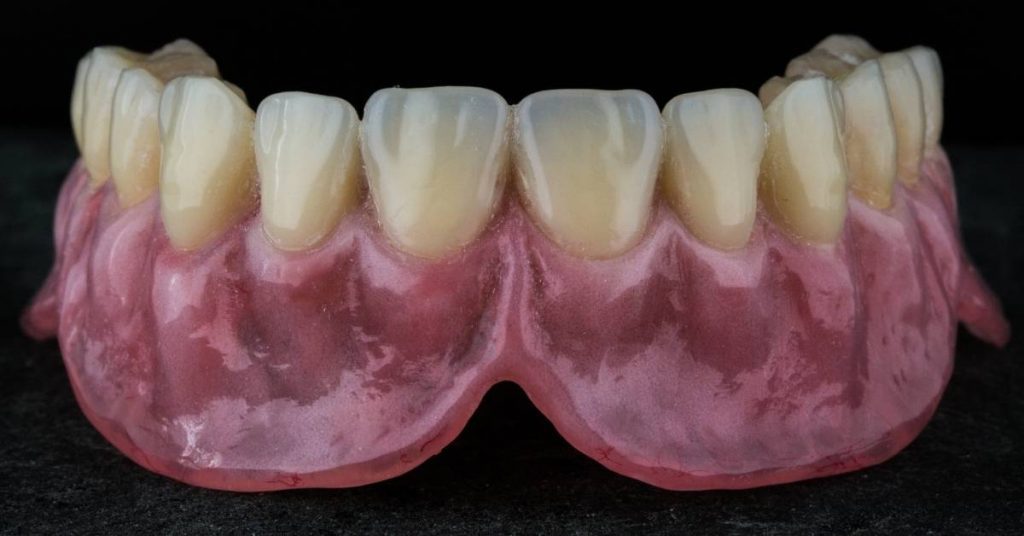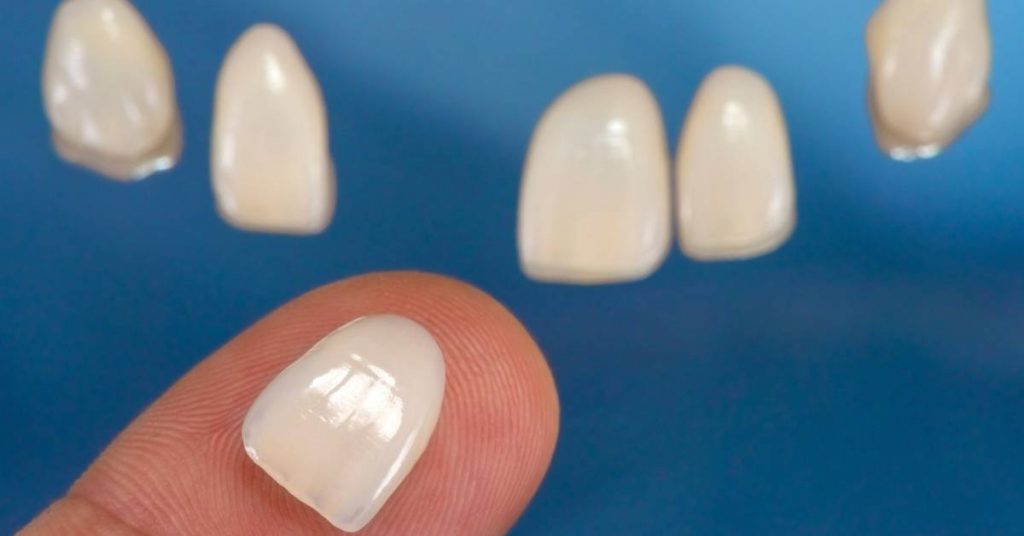Veneers are thin shells made of porcelain or composite resin attached to the front of your teeth to restore their shape and aesthetics. Unlike dental fillings, placed directly on the teeth by the dentist, veneers are first prepared in a dental laboratory and then bonded to the prepared teeth.
Dental veneers look much more natural and attractive than dental fillings. They are also stronger and more durable. If you are interested in getting dental veneers, talk to your dentist.
What problems do veneers fix?
When most people think about veneers, the first thing that comes to mind is fixing a person’s smile.
Veneers can be used to fix a wide variety of dental problems, including:
- Chipped teeth
- Gaps between teeth
- Teeth that are too short or too wide
- Misaligned teeth
- Slightly crooked teeth
- Discoloration of the teeth
In some cases, veneers can also be used to improve the overall appearance of your smile. Veneers may be a good option if you have felt self-conscious about your teeth.
If you are considering veneers, it is important to consult with a skilled and experienced cosmetic dentist. At our office, we will work with you to determine if veneers are the right solution for your specific needs. We will also go over the different types of veneers available and help you choose the best option for your smile. Contact our office today to learn more about veneers or schedule a consultation.
What Do Teeth Look Like Under Veneers?

People often want to know what their teeth will look like under veneers. This is a valid question, as veneers can completely change the appearance of someone’s teeth. In some cases, they can even make teeth look whiter and brighter.
Generally speaking, veneers will make teeth look more uniform and symmetrical. They can also help to cover up any imperfections or chips in the teeth. However, it’s important to note that veneers are not permanent fixes. They may eventually need to be replaced or re-applied.
If you’re considering getting veneers, it’s a good idea to consult with a dentist first. They can tell you whether or not veneers are the right option for you, and they can help you choose the right type of veneer for your needs.
Is it a bad idea to veneer healthy teeth?
No, it’s not a bad idea to veneer healthy teeth. Veneers can help to protect teeth from damage. They can also cover up any imperfections in the teeth, which can help improve their appearance.
However, it’s important to note that veneers are not permanent fixes. They may eventually need to be replaced or re-applied. Therefore, it’s essential to consult a dentist before getting veneers to ensure they are the right option for you.
What is the difference between dental bonding and veneers?
Dental bonding and veneers are two different treatments that can be used to improve the appearance of teeth. Dental bonding involves using a tooth-colored resin to cover up any imperfections in the teeth. Veneers, on the other hand, are thin pieces of porcelain bonded to the front of the teeth.
Therefore, it’s important to consult with a dentist before getting either treatment to ensure that it’s the right option for you.
Do teeth under veneers rot?

One of the most common questions about veneers is whether or not they will still allow the teeth to rot underneath. The answer is no! Veneers are a great way to protect your teeth from damage and decay.
When a tooth is damaged, the outer layer of enamel is usually lost. This can expose the tooth’s inner layers, making them more susceptible to decay and infection. Veneers cover the front surface of the tooth, which means they can help protect the tooth’s inner layers from damage.
Veneers are also made from materials that are resistant to decay and staining. This means they can help keep your teeth looking their best for years.
Do your teeth get ruined under veneers?
No, your teeth do not get ruined under veneers. Veneers can help to protect your teeth from damage and decay.
If you are concerned about the health of your teeth, veneers may be a good option. Contact our office today to learn more about veneers and how they can benefit your smile.
Pros and cons of veneers
What do they not tell you?
When considering dental veneers, there are a few things you should know.
These include:
1. Veneers are not a permanent fix.
They may last anywhere from five to ten years, but they may also need to be replaced sooner, depending on your lifestyle and how well you take care of them.
2. Veneers are not a cheap fix
They can cost anywhere from $800 to $2,000 per tooth. And finally, veneers are not a one-size-fits-all solution. They may not be the best option for everyone.
3. Tooth sensitivity
Because veneers are attached to the front of your teeth, which sometimes have to be grinded, they can cause tooth sensitivity, especially when eating hot or cold foods.
4. Gum irritation
Veneers can also irritate your gums, causing them to become inflamed and sore.
5. Chipping and breaking
Although veneers are strong materials, they can still chip and break if you bite down on hard objects or accidentally fall and hit your mouth.
So if you’re thinking about getting dental veneers, be sure to consult with your dentist to see if they’re the right option for you.
Benefits
Some benefits of veneers include:
- They can help to improve the appearance of teeth.
- They can be used to cover up any imperfections in the teeth.
- They can help to protect teeth from damage.
- They can be used to improve the symmetry of teeth.
- They can be used to make teeth look whiter and brighter.
However, it’s important to note that veneers are not permanent fixes. They may eventually need to be replaced or re-applied. Therefore, you must consult a dentist before getting veneers to ensure they are the right option for you.
Frequently Asked Questions
How much do veneers cost?
The cost of veneers varies depending on many factors, such as the type of veneers used and the dentist performing the procedure. However, veneers generally cost anywhere from $500 to $4,000 per tooth. Therefore, it’s important to consult with a dentist to get an accurate estimate of what the procedure will cost.
Are veneers worth it?
The answer to this question depends on each case. In some instances, veneers may not be the best solution. However, in other cases, they can be an excellent way to improve the appearance of your smile.
If you are considering veneers, it is important to consult with a skilled and experienced cosmetic dentist. At our office, we will work with you to determine if veneers are the right solution for your specific needs. We will also go over the different types of veneers available and help you.
Does insurance cover veneers?
In most cases, dental insurance does not cover the cost of veneers. However, some insurance plans may cover a portion of the cost. Therefore, it’s essential to check with your insurance provider to see if they offer any coverage for veneers.
What is the difference between Lumineers and regular veneers?
Lumineers and traditional veneers are both thin pieces of porcelain used to cover the front surface of the teeth. They are both made from high-quality materials designed to resist staining and wear. However, there are some critical differences between these two types of veneers.
One of the biggest differences between Lumineers and traditional veneers is the thickness of the porcelain. Lumineers are made from a thinner type of porcelain, which means they can be less invasive. They also require less preparation of the tooth before they are placed.
Another difference between Lumineers and traditional veneers is how they are placed. Lumineers are placed directly on the front surface of the teeth, while traditional veneers are bonded to the front surface of the teeth with a special adhesive.
Lumineers are also more resistant to staining and wear than traditional veneers. However, they are not as strong as traditional veneers and may not last as long.







